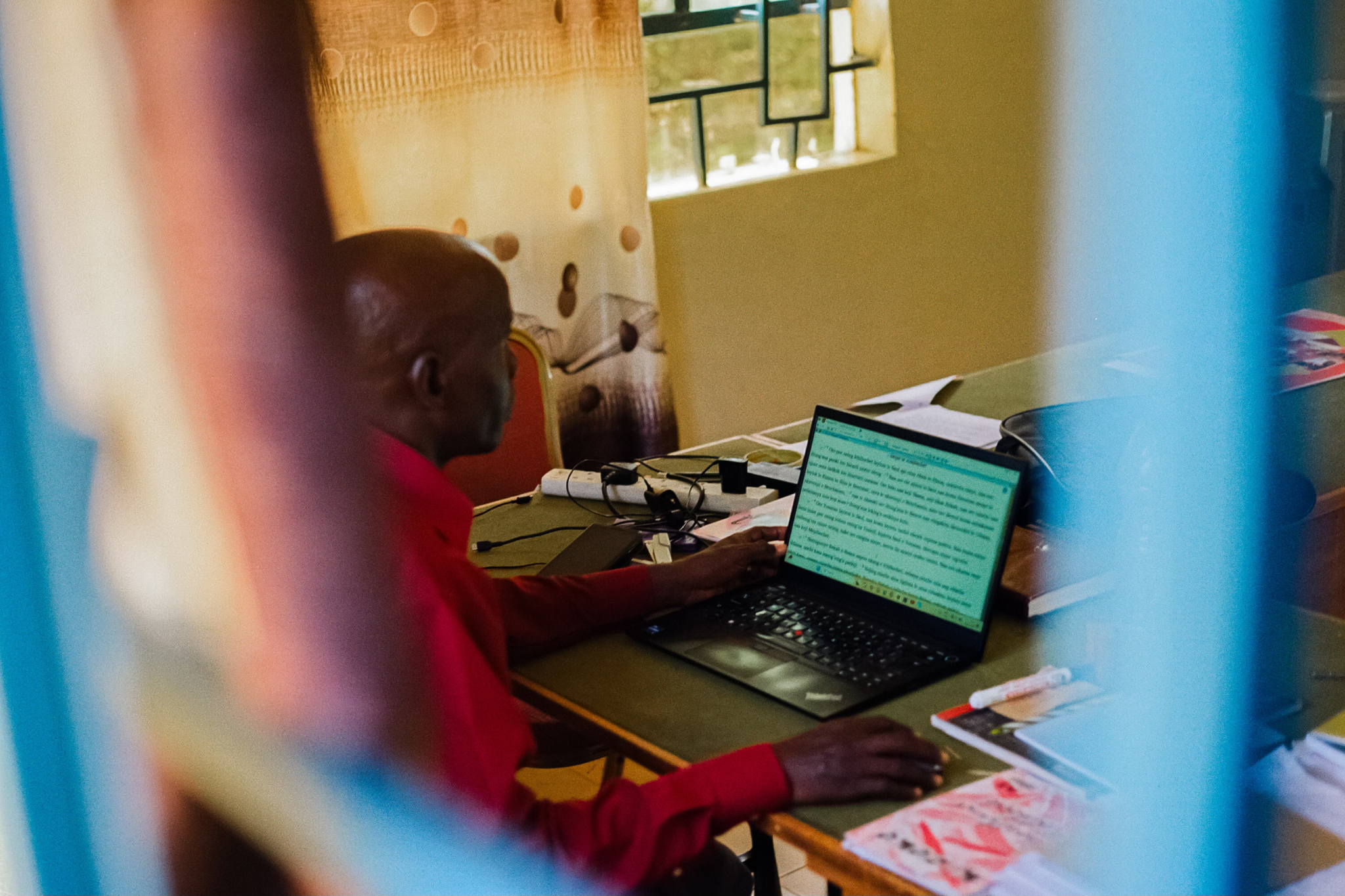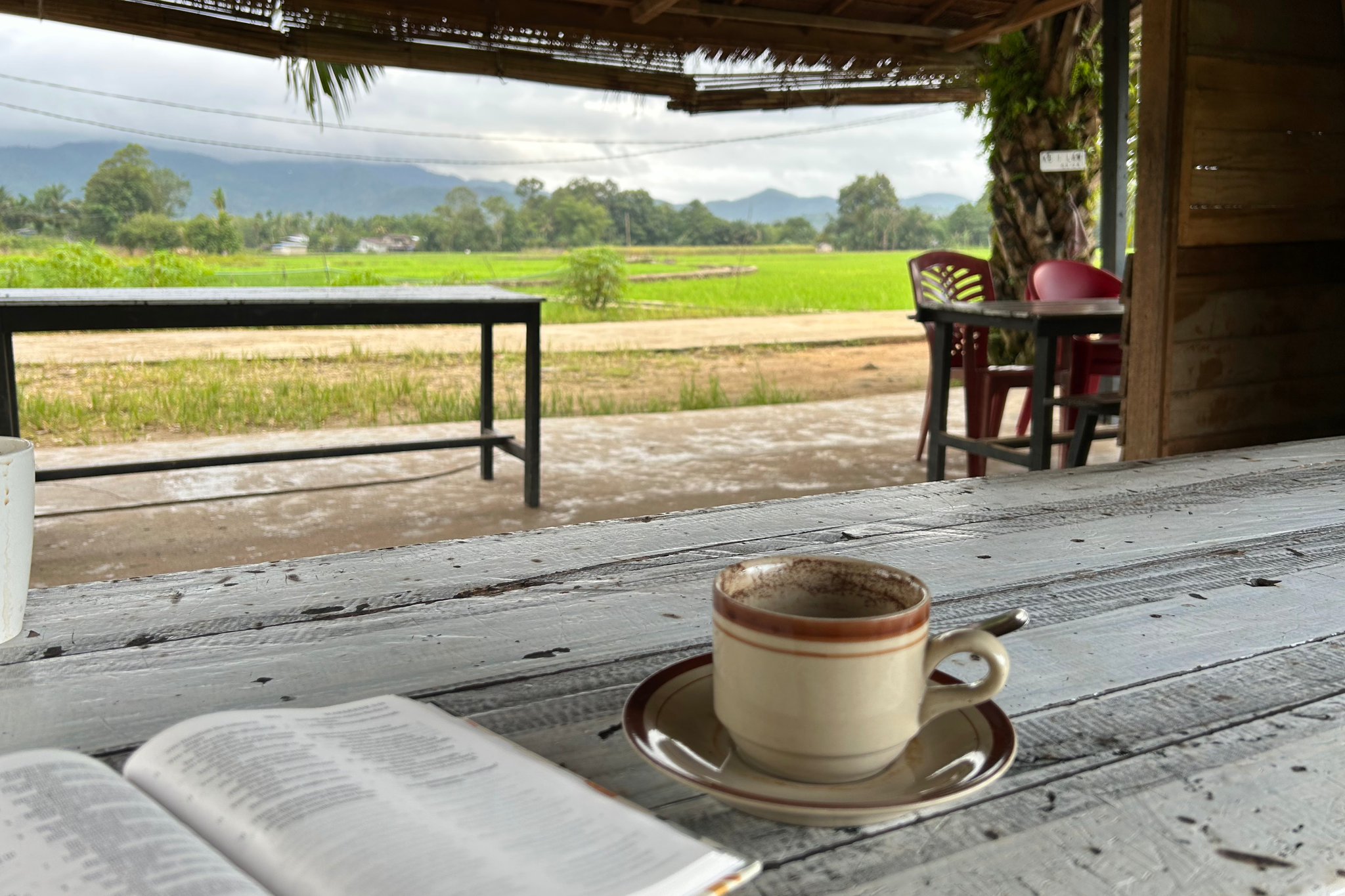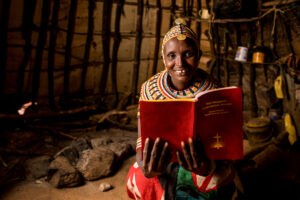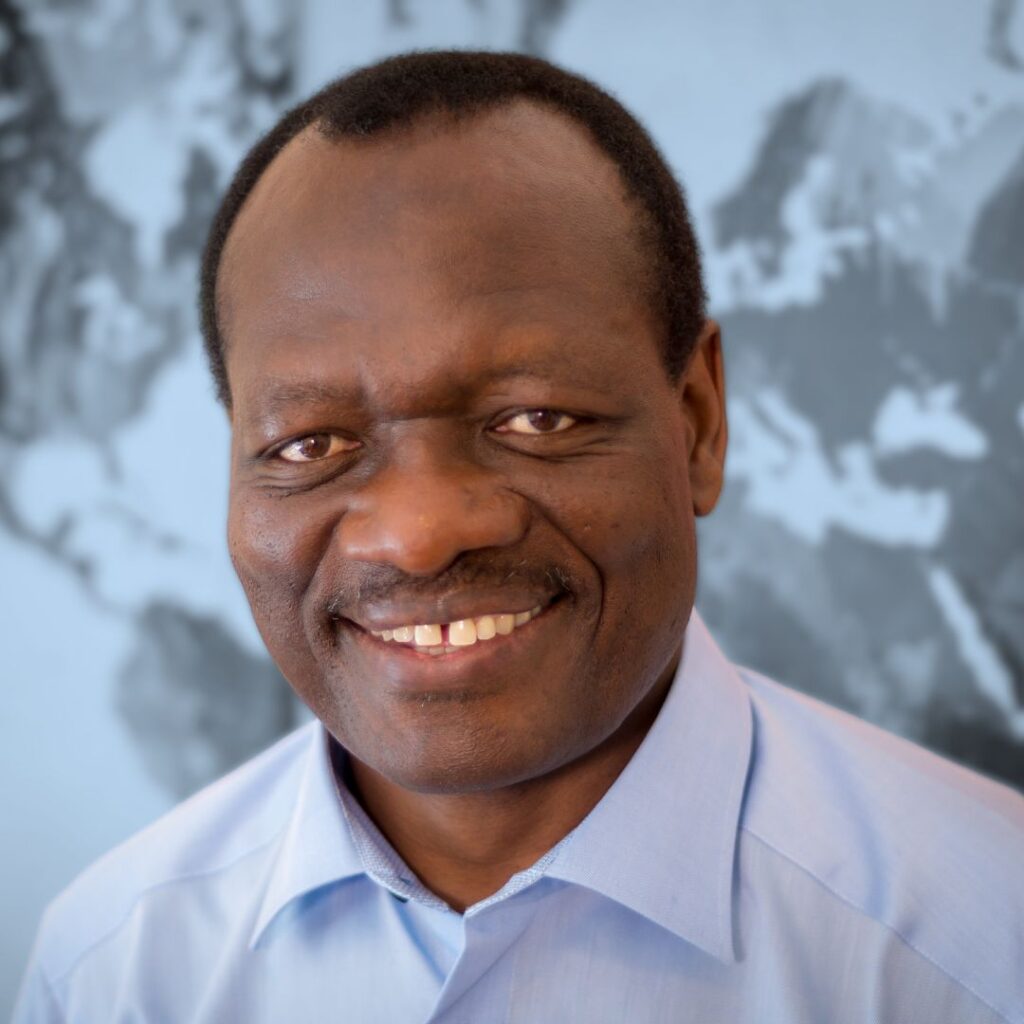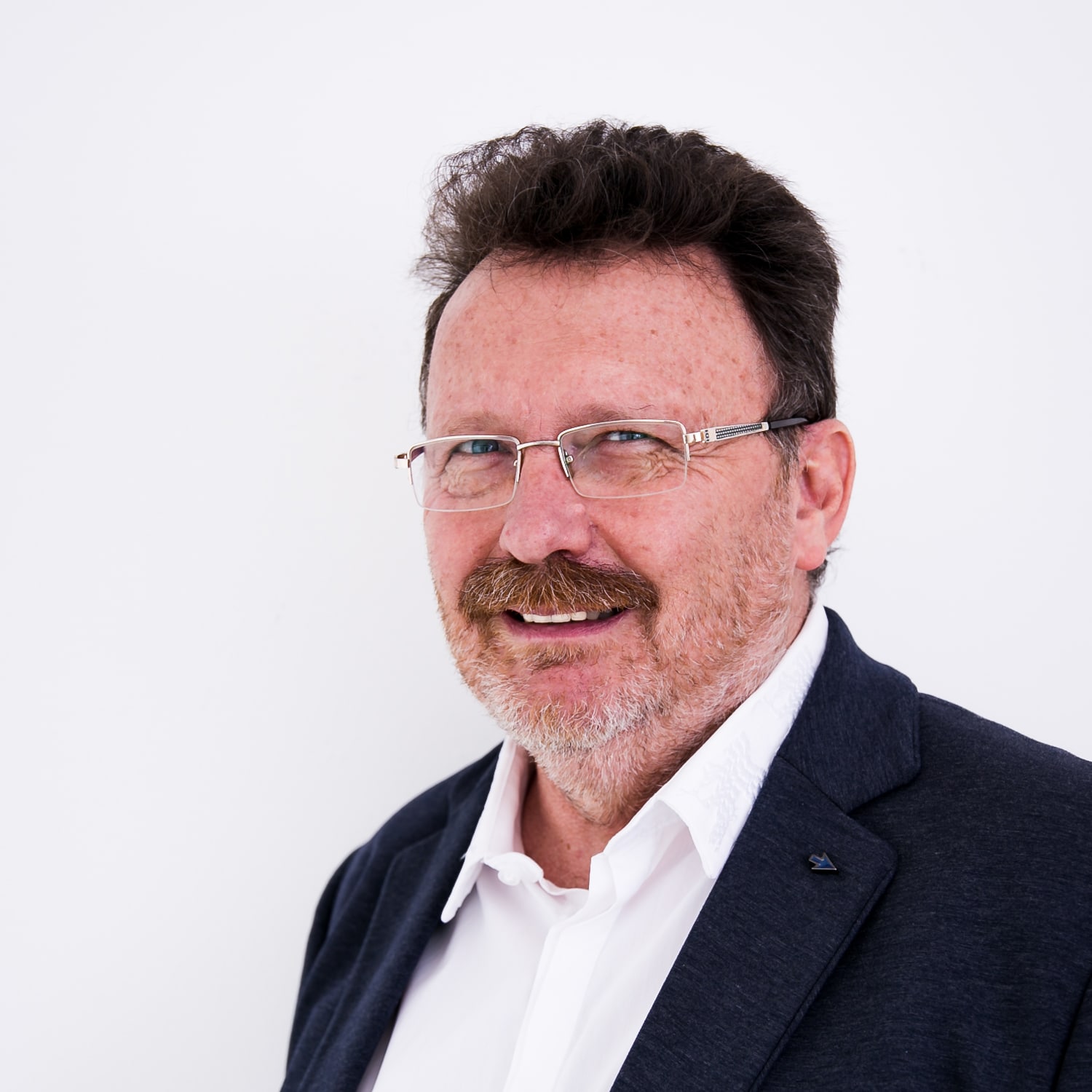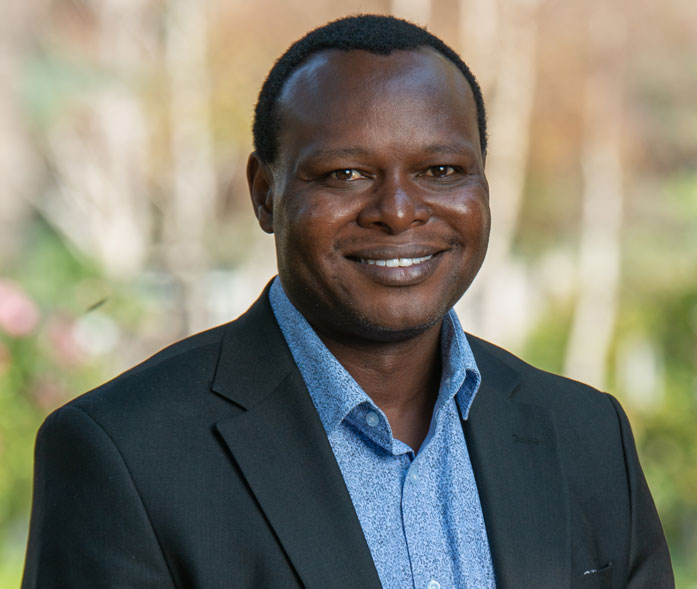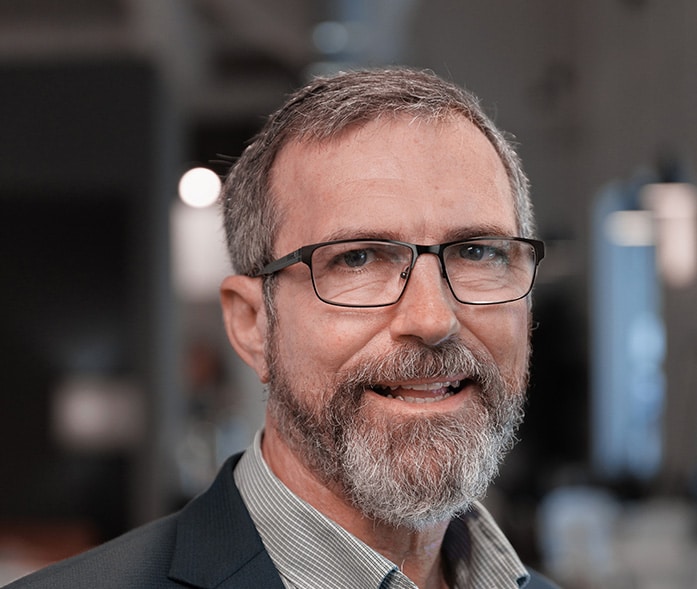Baska refugees find hope in heart language Scriptures.
The people of the Baska* language community are, for the most part, native to a country that is openly hostile to the Christian faith. Among them, the vast majority follow a religion that denies the deity of Christ. The Baska live in remote, impoverished areas, and have been marginalized by their government. In their country, there are no known believers.
The youth of the Baska can often understand the national language, but women and the elderly are monolingual, knowing no language besides Baska. Without access to Scripture in Baska, they may never hear the gospel or have the opportunity to trust Jesus for salvation.
With stakes that couldn’t be higher, the Baska translation team has pushed forward undaunted, determined to persevere.
Entering Phase Two after a Rocky Phase One
Until a certain global pandemic, the first phase of the Baska project clicked along smoothly. Sadly, it did not result in a complete New Testament. Undeterred, the team continues to strive toward that goal. Because it is not safe to live in the community they are trying to affect, the translation team works remotely. This allows them to continue their work despite the conflict that plagues the Baska people, but it is a consistent challenge to stay in contact with and encourage the Baska speakers whose communities have been ravaged by war.
And the ongoing unrest does make some translation tasks more difficult. Comprehension testing—where Baska speakers hear the translated literature read aloud and answer questions about the clarity of the message—had to be relocated away from the fighting.
Collaboration Without Animosity
Approximately 90% of the quarter of a million Baska speakers live in a nation that oppresses Christ-followers. Some now live as refugees across the border in the nation their home country is at war with.
But God is bringing together Baska speakers from opposing sides of the conflict, unifying them as they work together to bring God’s Word to their people. According to Michael*, the team project manager, “Despite this situation being divisive, even among believers, our team works together profitably.” This also means that a fairly small and destitute subgroup of Baska refugees have had an amazing opportunity to provide feedback on the translation, despite limited access to people in their country of origin. After distributing translated literature from the project’s first phase the team began seeing the movement of the Holy Spirit. Now, over 100 Baska speakers in the refugee camps have turned their hearts to Jesus!
Encouraging the Persecuted Church
Michael* has occasional communication with Baska Christians living in danger, but he cannot form the deeper relationships he desires. Those believers who escaped immediate peril still face frequent persecution while living as refugees.
Even so, their dedication inspires the team. Michael explained, “Being a part of the Baska project is vital for those coming from areas of heavy persecution.” Their work promotes their heart language and highlights the dignity of their people. One man described it as bringing “meaning and value to his difficult life.”
The team diligently works to ensure every Baska person has access to the life-giving power of heart language Scripture.
“Each of us,” one team member said, “understands how important it is to have the Word of God in our own language. It comforts us and builds us up. It is important, in this moment of uncertainty, to share the Word with those who don’t believe. We feel the urgency of bringing a strong and clear message of salvation for all those who find it difficult to understand. How long will we have? Will everything get more difficult? Despite such questions in our hearts, we move forward, more convinced than ever.”
*Pseudonym

